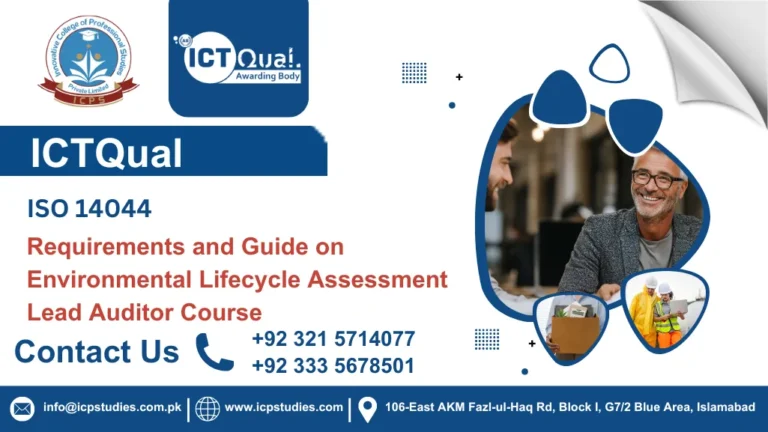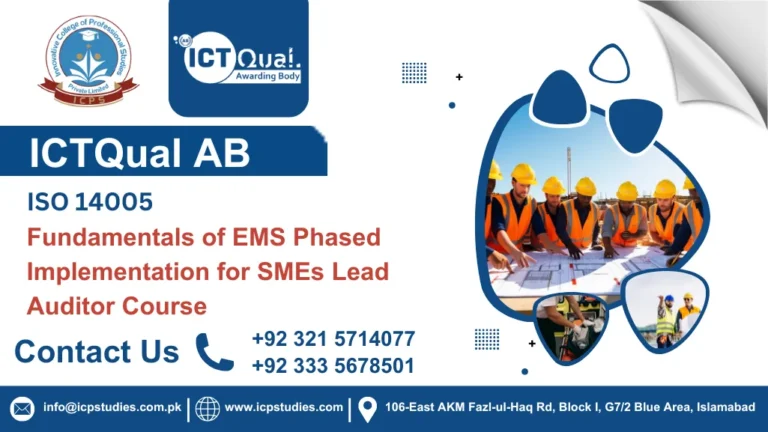In today’s global business landscape, maintaining integrity and ethical standards is paramount for organizations to thrive and earn trust from stakeholders. However, the prevalence of bribery and corruption poses significant challenges, threatening the reputation and sustainability of businesses worldwide. To combat this pervasive issue, many organizations are turning to standards such as ISO 37001 Anti-Bribery Management Systems as a framework for establishing robust anti-bribery practices.
ISO 37001, developed by the International Organization for Standardization (ISO), provides organizations with guidelines for implementing effective anti-bribery management systems (ABMS). This standard offers a comprehensive framework that helps organizations of all sizes and sectors mitigate the risk of bribery and corruption and demonstrate their commitment to ethical business practices.
ISO 37001 Anti-Bribery Management Systems offers a structured approach to combating bribery and corruption, empowering organizations to uphold ethical standards and contribute to a more transparent and trustworthy business environment globally. By embracing this standard, organizations can not only mitigate risks but also demonstrate their commitment to ethical business practices and social responsibility.
All About ISO 37001 Anti-Bribery Management Systems
Course Overview
ISO 37001 Anti-Bribery Management Systems is an international standard developed by the International Organization for Standardization (ISO) to provide organizations with a framework for implementing effective measures to prevent, detect, and address bribery and corruption. Introduced in 2016, ISO 37001 is designed to help organizations of all sizes and sectors establish robust anti-bribery practices and demonstrate their commitment to ethical business conduct.
ISO 37001 certification demonstrates an organization’s commitment to integrity, transparency, and ethical conduct. It offers numerous benefits, including enhanced reputation, improved risk management, increased stakeholder trust, and a competitive advantage in the marketplace. By embracing ISO 37001, organizations can mitigate the risks associated with bribery and corruption while promoting a culture of integrity and compliance with anti-bribery laws and regulations.
Study Units
- Introduction to Anti-Bribery Management Systems
- Overview of ISO 37001: Key Concepts and Requirements
- Establishing an ABMS: Policies, Procedures, and Controls
- Risk Assessment and Due Diligence Processes
- Implementing Anti-Bribery Training and Awareness Programs
- Monitoring, Measurement, and Continuous Improvement
Admission Criteria
- Introduction to Anti-Bribery Management Systems:
- Understand the importance of anti-bribery management systems (ABMS) in preventing and detecting bribery and corruption within organizations.
- Identify the key objectives and benefits of implementing an ABMS.
- Gain insight into the global impact of bribery and corruption on businesses and society.
- Overview of ISO 37001: Key Concepts and Requirements:
- Familiarize oneself with the structure and scope of ISO 37001, including its key concepts, terminology, and requirements.
- Understand the principles and framework of ISO 37001 and its alignment with international best practices.
- Recognize the significance of ISO 37001 certification as a demonstration of an organization’s commitment to combating bribery and corruption.
- Establishing an ABMS: Policies, Procedures, and Controls:
- Develop clear and comprehensive anti-bribery policies, procedures, and controls in accordance with ISO 37001 requirements and organizational objectives.
- Establish effective mechanisms for communicating anti-bribery policies and procedures to employees, stakeholders, and relevant third parties.
- Implement appropriate controls to prevent, detect, and address bribery risks within the organization’s operations and business relationships.
- Risk Assessment and Due Diligence Processes:
- Conduct thorough risk assessments to identify and evaluate bribery risks associated with the organization’s activities, operations, and business partners.
- Implement due diligence processes to assess the integrity of third parties, including suppliers, contractors, agents, and other business associates.
- Develop strategies to mitigate identified bribery risks and vulnerabilities through proactive measures and controls.
- Implementing Anti-Bribery Training and Awareness Programs:
- Design and deliver effective anti-bribery training programs tailored to the needs and roles of employees, managers, and relevant stakeholders.
- Raise awareness among employees about the risks and consequences of bribery and corruption, as well as their responsibilities in preventing and reporting such activities.
- Foster a culture of integrity, transparency, and ethical conduct through ongoing education and communication initiatives.
- Monitoring, Measurement, and Continuous Improvement:
- Establish mechanisms for monitoring and measuring the effectiveness of the ABMS in preventing and detecting bribery and corruption.
- Develop performance indicators and metrics to assess compliance with anti-bribery policies, procedures, and controls.
- Implement a process for continuous improvement, including regular reviews, audits, and updates to the ABMS to address emerging risks and enhance effectiveness over time.
By mastering these learning outcomes, participants will acquire the knowledge, skills, and tools needed to establish and maintain effective anti-bribery management systems in accordance with ISO 37001 requirements, thereby contributing to a culture of integrity and compliance within their organizations.
Ideal Candidate
- Educational Background:
- There are typically no specific educational prerequisites for enrolling in a course on ISO 37001. However, a basic understanding of business management, governance, or compliance principles may be beneficial.
- Professional Experience:
- Participants are often expected to have relevant professional experience in roles related to compliance, risk management, corporate governance, or internal audit. This experience provides a foundation for understanding the complexities of anti-bribery management systems.
- Industry Knowledge:
- Familiarity with the industry or sector in which the organization operates can be advantageous. Individuals with experience in sectors prone to bribery and corruption risks, such as international trade, construction, or government contracting, may find the course particularly relevant.
- Organizational Position:
- The course may be targeted towards professionals in various organizational roles, including compliance officers, risk managers, internal auditors, legal counsel, corporate governance specialists, and senior executives responsible for ethics and compliance.
- Language Proficiency:
- Proficiency in the language of instruction is essential to comprehend course materials, participate in discussions, and complete assessments effectively. Depending on the course provider, applicants may need to demonstrate language proficiency through standardized tests or other means.
- Access to Resources:
- Participants may need access to specific resources, such as computers with internet access, textbooks, or training materials. Ensuring access to these resources may be a requirement for enrollment.
- Commitment to Ethical Conduct:
- Given the focus on anti-bribery and ethical business practices, participants are expected to demonstrate a commitment to integrity, transparency, and ethical conduct. This includes a willingness to adhere to anti-bribery policies and procedures and a dedication to promoting a culture of compliance within their organizations.
- Legal Requirements:
- Depending on the jurisdiction and industry, there may be legal or regulatory requirements related to bribery and corruption prevention. Participants should familiarize themselves with relevant laws and regulations applicable to their organizations and roles.
- Pre-Course Assessment:
- Some course providers may require candidates to complete a pre-course assessment or interview to evaluate their suitability for the program. This assessment could cover topics such as motivation, understanding of course expectations, and alignment with learning objectives.
It’s important for prospective participants to review the specific entry requirements outlined by the course provider and ensure they meet all criteria before applying for enrollment. Additionally, candidates should consider how their existing skills, experience, and organizational context align with the objectives of the course to determine if it’s the right fit for their professional development goals.
Learning Outcomes
The course on “ISO 37001 Anti-Bribery Management Systems” is designed for a wide range of professionals across various industries who are committed to promoting integrity, transparency, and ethical conduct within their organizations. This course is particularly suitable for:
- Compliance Officers: Professionals responsible for ensuring that their organizations comply with relevant laws, regulations, and ethical standards can benefit from gaining in-depth knowledge of anti-bribery management systems to strengthen compliance efforts.
- Risk Managers: Individuals tasked with identifying, assessing, and mitigating risks within their organizations can enhance their skills by learning how to implement effective measures to prevent bribery and corruption.
- Internal Auditors: Auditors responsible for evaluating internal controls and assessing organizational risk exposure can expand their expertise to include anti-bribery management systems and contribute to enhancing organizational governance.
- Legal Counsel: Legal professionals involved in advising organizations on compliance matters, risk mitigation strategies, and legal implications of bribery and corruption can deepen their understanding of anti-bribery laws and best practices.
- Corporate Governance Specialists: Specialists responsible for developing and implementing corporate governance frameworks and policies can incorporate anti-bribery management systems into their governance structures to promote accountability and transparency.
- Senior Executives: Senior leaders, including CEOs, CFOs, and board members, who play a pivotal role in setting organizational priorities and promoting a culture of integrity and compliance can benefit from understanding the importance of anti-bribery management systems and their strategic implications.
- Ethics and Compliance Professionals: Individuals dedicated to fostering a culture of ethics and compliance within their organizations can leverage the knowledge and skills gained from this course to enhance anti-bribery initiatives and promote ethical conduct among employees and stakeholders.
- Government Officials: Public sector professionals involved in regulatory enforcement, public procurement, and governance reforms can gain insights into international best practices for preventing bribery and corruption and apply them to their governmental agencies or departments.
- Business Leaders and Entrepreneurs: Business owners, entrepreneurs, and managers of small and medium-sized enterprises (SMEs) can learn how to establish effective anti-bribery management systems to protect their businesses from legal, financial, and reputational risks.
- Professionals in High-Risk Industries: Individuals working in industries prone to bribery and corruption risks, such as international trade, construction, healthcare, and government contracting, can acquire specialized knowledge and tools to address specific challenges within their sectors.
Overall, this course is suitable for professionals from diverse backgrounds who are dedicated to promoting ethical business practices, mitigating bribery and corruption risks, and fostering a culture of integrity and compliance within their organizations and broader communities.
FAQs about ISO 37001 Anti-Bribery Management Systems






